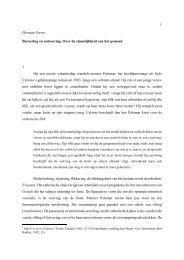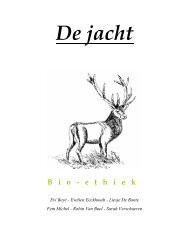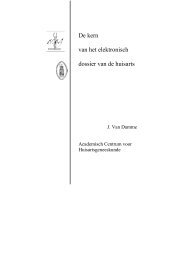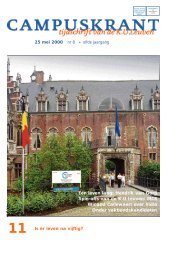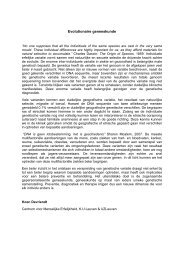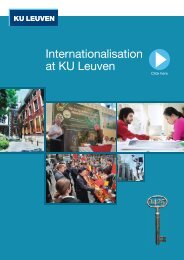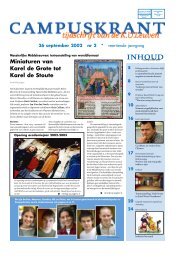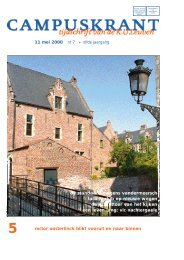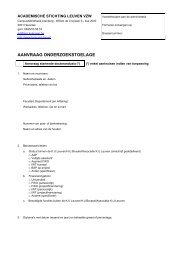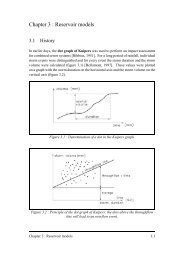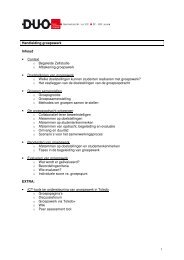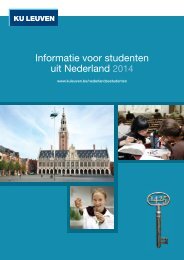EQUALITY GUIdE - KU Leuven
EQUALITY GUIdE - KU Leuven
EQUALITY GUIdE - KU Leuven
Create successful ePaper yourself
Turn your PDF publications into a flip-book with our unique Google optimized e-Paper software.
92 Equality Guide<br />
rienced as an advantage rather than a disadvantage of an academic career. All studies<br />
also point out that the atmosphere at the shop floor and a fascinating job with respect<br />
to content play a decisive part in the hunt for the perfect job.<br />
When comparing the results of the various survey parts, it becomes apparent that the<br />
students’ perceptions about an academic career are closely in line with their expectations<br />
regarding the ideal job. However, this raises the question whether this perception<br />
conforms to reality. Among other studies, ‘Wetenschap tussen roeping en beroep’ 99 has<br />
shown that many researchers feel disappointed during their careers, because they misjudged<br />
the atmosphere, the pressure of work and the creative freedom. Furthermore,<br />
the analysis of the survey proves that most students have no clear ideas about the opportunities<br />
Ghent University has to offer after their graduation. Nor do the majority of<br />
respondents seem to know how to edge their way through the university’s structures.<br />
Thus, the university’s task is not so much to glamorize an academic career, but rather<br />
to inform the students correctly and thoroughly about their future prospects and<br />
chances. Since a lot of the respondents claim to consider a future career as early as in<br />
their last year but one, it is important to give information early on.<br />
When informing students (through workshops, information sessions, websites, newsletters,<br />
etc), both gender differences and differences between the faculties have to be<br />
taken into account. To be able to discuss the specific possibilities and problem areas of<br />
certain disciplines in detail, it might be more effective to address the students of each<br />
faculty separately. Furthermore, students should be stimulated more to take the initiative<br />
to discuss possible future research topics with members of the academic staff. This<br />
is especially true for female students, since the research on PhD-students 100 concluded<br />
that most female students wait until someone addresses them. Consequently, a large<br />
group of potentially excellent researchers goes to waste.<br />
2.5.2. Prospects for further research<br />
The survey has made it clear that the current ways in which students are given information<br />
about an academic career are not sufficient to give a thorough and balanced picture<br />
of the students’ prospects. Therefore, research has to be done on the ways in<br />
which students can be reached, as well as on the possibility of painting a realistic picture<br />
of the advantages and disadvantages of an academic career. Furthermore, it might<br />
be interesting to follow up a group of students who are interested in becoming researchers<br />
during their final years as students and their first years as young academics.<br />
This way, the extent to which their expectations meet with everyday working life could<br />
be studied thoroughly.<br />
99<br />
De Gier et al. (2001), op. cit.<br />
100 Verlinden et al. (2005), op. cit.



